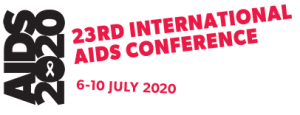By Ismail Harerimana
Eleven years ago, I discovered that I was HIV positive after I was disclosed to by one of my fellow adolescents. I had thought I was taking medication for my kidneys because that is what my parents had told me. At the age of 15, I knew little about HIV & AIDS except for the information I received from the presidential initiative of AIDS strategy for communication to youth (PIASCY). This is where various speakers would attend schools to teach learners about HIV & AIDS, treatment, prevention and HIV transmission.
Due to my little knowledge about HIV, the truth about my status was difficult for me to process and so life became very hard for me. I did not disclose my status to my friends at school. I would take my medication each day at 7am while I was still on AZT/3TC/NVP. When people asked me why I was taking medication, I would tell them that I’m taking it for my kidneys and eyes, and they believed this. My Head School Principal also did not know that I was HIV positive, so this made getting permission to leave school to get my ART medication refills difficult. I would often leave school without permission and because of this, I would face school punishment nearly every month. At this point, I thought about dropping out of school because it had become too much for me to handle and my academics were also not spared. Because I had lost hope, I started performing poorly and coupled with this was the thought that I was going to die soon. Instead of revising during school classes, I would think about what I would tell God upon my death and how I was going to miss my friends. At the end of every school term, I would bid farewell to them because I thought I would not return the following term. I used to ask my friends to attend my burial in case they heard I died. To address their suspicions, I would tell them that my family had many misfortunes. I also had no future plans, especially not with partnerships, because I feared spreading HIV to other people. Despite all this and my fears, I persisted and completed my secondary education.
As time went along, I eventually stopped pitying myself and instead became open about my status. It was during this time that I realized that I could also use my status to encourage fellow adolescents and young people to live positively. I started a group to bring young positives together to fight AIDS. This group is called Kabale Young Positives (KYP) and it involves 30 HIV-positive youth, all of whom have accepted their HIV status. I lead this group by visiting, supporting and counselling many adolescent and young people who are not adhering to their medication.
It was as if one day I found my voice and used it to empower my peers which is also seen in the various roles to which I commit. I have completed short courses in HIV counselling, and I am now volunteering as a youth peer at Kabale Regional Referral Hospital. I am an Ariel Ambassador supporting EGPAF’s Ariel clinics in all their supported districts in Uganda as well as a national Young People and Adolescent Peer Supporter (YAPS) Trainer. I was also selected as one of the Uganda members of a Committee of African Youth Advisors.
When comparing my lived experience of HIV to what I learnt about HIV in school awareness campaigns, there is one major aspect that I notice, and it is something I wish to advise to policymakers. It is essential to change provoking messaging about HIV awareness from “AIDS KILLS; AIDS HAS NO CURE; THE ENDING RESULT FOR SOMEONE WITH HIV IS DEATH” to something more positive and accurate. I question how this kind of messaging makes a school learner, who has just been fully disclosed to, feel. Similar to how I felt, I think it would make the school learner not adhere to their ARVs and think life is pointless. This negative dialogue needs to be changed to focus on more positive and less stigmatizing language because this does not motivate youth to stay adherent but rather has a profound impact on mental health. I believe that positive encouragement and making people aware that they can live healthy and happy lives despite being HIV positive is very important; it would help youth living with HIV as it would have helped me.
